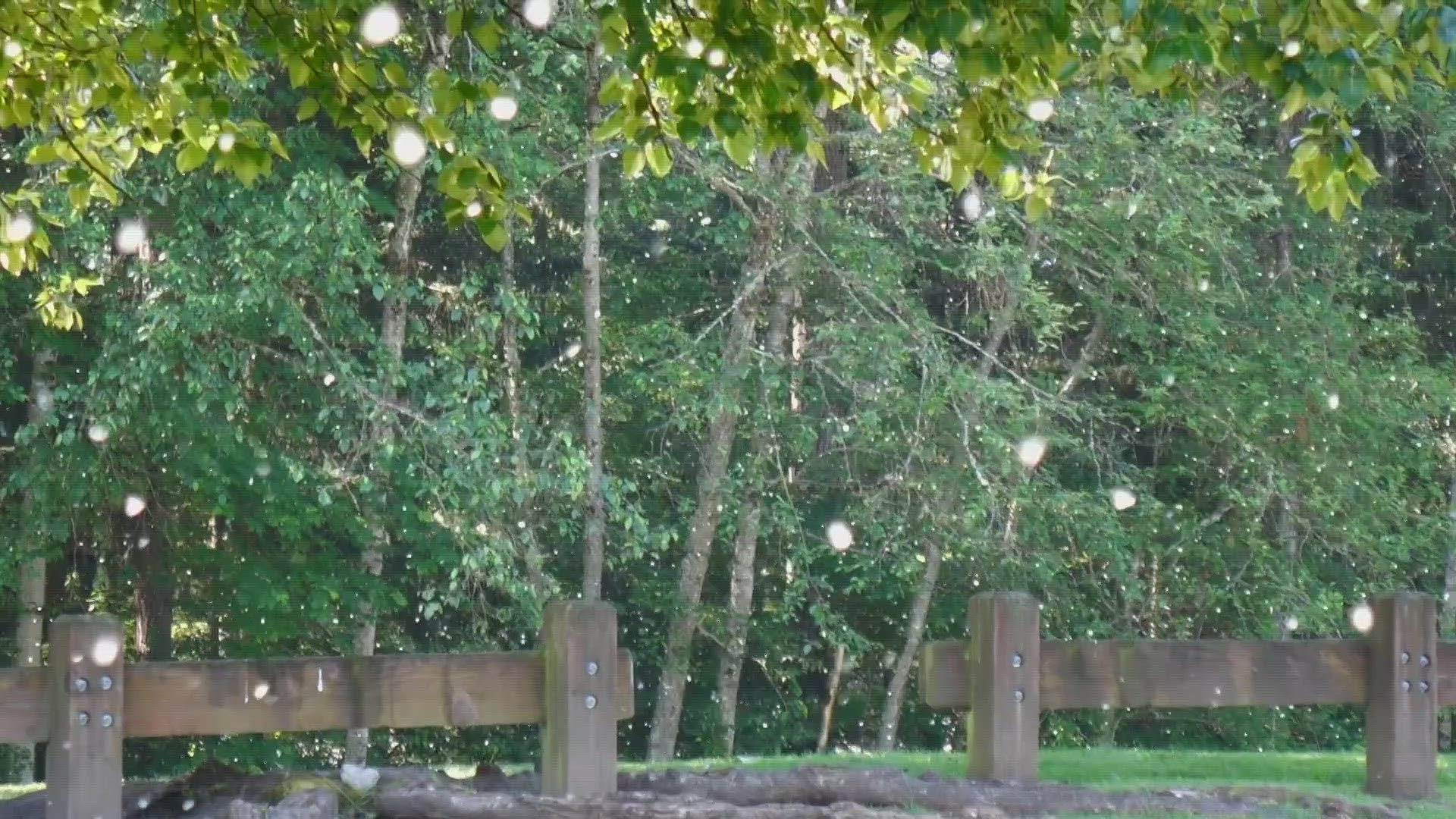WASHINGTON, USA — There’s something special in the air this week and our resident gardening expert Ciscoe Morris says Washingtonians better “get used to it because our cottonwood trees aren’t going anywhere!”
Master Gardener Ciscoe Morris is answering the questions from the many who noticed the skies filled with “fluffy white cotton stuff” and says a common misconception is easy to clear up.
What is this fluffy, white stuff?
“They are actually seeds on parachutes and pose no issue for your allergies, there’s plenty of other stuff that’s to blame for that,” says Morris. Black Cottonwood trees are native to the area and thrive in moist conditions. The trees can grow to be over 100 feet tall and have a six-foot-wide trunk.
The cottonwood has separate male and female flowers. The male flowers release pollen in March but are done by May. The flying phenomenon is the female flower release.
“They are seeds on parachutes and when they hit the ground they can germinate in one day,” Morris says.
So, why is this not contributing to my seasonal allergies?
Ciscoe says the confusion about allergies is easy to clear up.
“You can’t make seeds until you’ve already been pollinated so the falling seeds are not allergenic,” Morris said.
How long will it last?
Weather plays a factor in this phenomenon and a lack of rain and slight wind helps the fluff take flight.
“The trees love moisture so they’re often near water but the wind will carry the parachutes a long way so that’s why some neighborhoods look like snow and some don’t see any,” Morris said.
The cotton fiber substance can last up to two weeks and can travel as far as 5 miles.
What is causing my seasonal allergies?
It's not the Cottonwood, it's the grasses. One grass flower can hold 10 million grains of pollen.
"You're never going to get rid of Cottonwood trees, so you might as well learn to love that cottony stuff that's comin' down!" Morris said.

